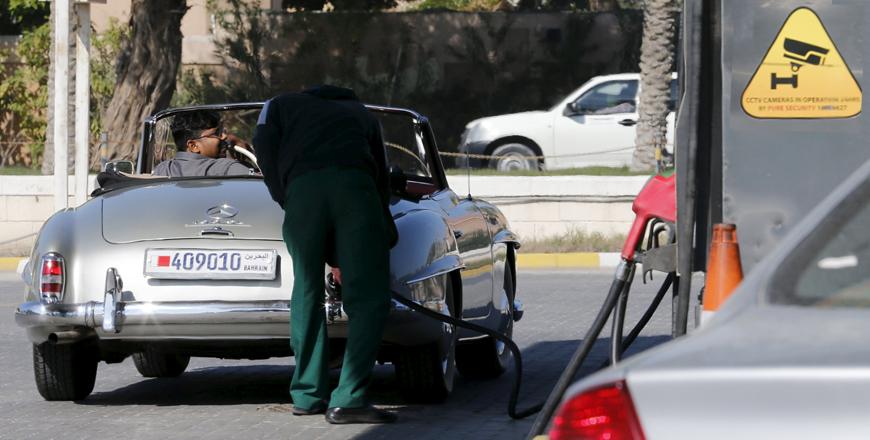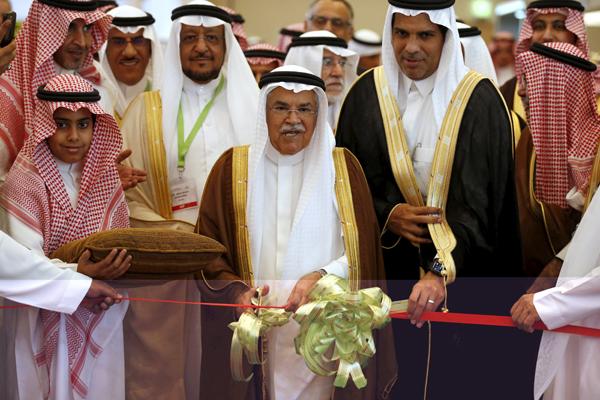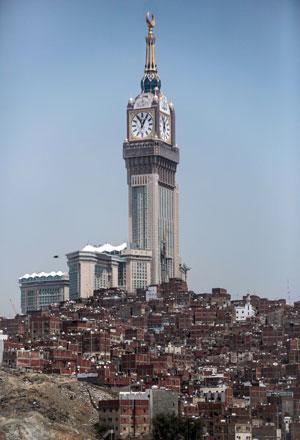You are here
Saudi budget marks end of era for lavish Gulf welfare handouts
By Agencies - Dec 31,2015 - Last updated at Dec 31,2015

A petrol station attendant refuels a car at a petrol station in Budaiya, west of Manama, Bahrain, on Tuesday (Reuters photo)
DUBAI — An austere state budget released by Saudi Arabia this week is likely to mark the end of an era for the Gulf's lavish cradle-to-grave welfare systems, encouraging governments around the region to roll back costly handouts to their populations.
Struggling to narrow a huge budget deficit created by low oil prices, Riyadh on Monday announced government spending cuts, reforms to energy subsidies and a drive to raise revenues from taxes and privatisation next year.
Gulf governments have tightened their belts in the past during periods of slumping oil prices. But the Saudi budget went further than usual by including steps that will directly hit the purchasing power of citizens — in particular, raising domestic gasoline, kerosene, water and electricity prices.
It was the biggest step a rich Gulf Arab oil exporting state has taken so far to change an arrangement in which governments heavily subsidise fuel, water, food and other essentials for their populations in exchange for social peace.
Because of Saudi Arabia's role as the political leader of the Gulf Arab states and the biggest Arab economy, other Gulf governments are now expected to follow suit as they impose their own austerity programmes in response to the prospect of years of shrunken oil and gas revenues.
"The initiatives announced in the Saudi budget will be game-changers in the Gulf," said Kristian Coates Ulrichsen, a political scientist at Rice University's Baker Institute in the United States.
"If the reforms can be implemented without a significant backlash, that would boost the political courage of governments that hitherto have been hesitant to introduce such sensitive changes," he added.
In postings on Twitter, ordinary citizens in the Gulf also saw the Saudi budget as signalling tougher times for the region.
"Saudi Arabia's budget deficit is terrifying! We fear that it will be echoed around the Gulf," tweeted a Kuwaiti high school teacher who identified himself as Bu Dujan, noting that fuel price hikes in the region would raise the costs of goods.
Political will
Some countries had already launched reforms before Riyadh made its move.
In August, the United Arab Emirates (UAE) abandoned a system of fixed gasoline prices in favour of one linked to global oil prices; gasoline has barely risen, but the way is clear for it to do so in future when oil eventually recovers.
Bahrain more than doubled prices of beef and chicken in October as it removed subsidies on them, and this week the Bahraini cabinet approved a new system for diesel and kerosene that would allow prices to rise gradually in coming years.
Bigger changes are on the way. Governments in Bahrain, Kuwait, Qatar and Oman, which face financial squeezes of varying intensity, have all said they are conducting broad reviews of their subsidy systems, though they have not yet committed to specific reforms.
Because of political sensitivities, governments are likely to move cautiously; Saudi officials stressed this week that they wanted to minimise the impact on the living standards of lower- and middle-income people.
Although the Saudi price of 95 octane gasoline jumped 50 per cent, it remained very low by global standards, at 0.90 riyal ($0.24) per litre. Water and electricity price hikes were structured to impose most of the burden on big corporate users.
Nevertheless, Riyadh made clear that the price hikes were only the first in a series, saying it would adjust subsidies for water, electricity and petroleum products over five years.
Once governments start cutting subsidies, it may be hard for them to resist the huge savings available from more reforms.
The International Monetary Fund estimates Riyadh spent $107 billion on energy subsidies this year, more than its entire budget deficit of $98 billion.
"We think that the Saudi consumer fuel price changes will be the first of many to come over the next few years around the Gulf,” said Mohammed Al Hajj, associate at investment bank EFG Hermes in Dubai.
In the wake of the Saudi budget, Kuwait's Finance Ministry Undersecretary Khalifa Hamada told the Al Qabas newspaper that his ministry would present a proposal to "rationalise" subsidies to an economic committee in the cabinet at the end of this week.
The proposal would save the government 6.2 billion dinars ($20.5 billion) over the next three years, Hamada indicated, estimating that without reforms, Kuwait would spend 16 billion dinars on subsidies over three years.
Saudi tax policy is also expected to influence the Gulf, because of the close ties between the region's economies.
In its budget announcement, the Saudi finance ministry said it planned to introduce value-added tax in coordination with other countries in the region — a measure that would directly affect the spending power of ordinary consumers, even if it is mitigated by exemptions for items such as food.
Officials have said countries would need to introduce the tax jointly to avoid smuggling and loss of economic competitiveness, but Gulf Arab governments have been discussing the idea inconclusively for years.
Previously, the main impetus for the tax came from the UAE. Saudi Arabia's decision to endorse it publicly means the project looks likely to go ahead in the next few years.
Separately, an economic report said Wednesday that Saudi economic growth is set to slow further in 2016 after the heavyweight in the Organisation of Petroleum Exporting Countries announced record deficits due to the slump in oil prices.
Jadwa Investment forecast the Saudi economy would grow by just 1.9 per cent next year, down from 3.3 per cent this year and 3.5 per cent in 2014.
The world's top oil exporter announced Monday a record budget deficit of $98 billion in 2015 and projected a shortfall of $87 billion next year.
Jadwa expects the oil sector to grow by a meagre 0.9 per cent on an average crude production of 10.2 million barrels per day.
To finance the budget, the Saudi government withdrew from its huge fiscal reserves and issued bonds on the domestic market.
The reserves dropped from $732 billion at the end of 2014 to $628 billion in November, Jadwa pointed out.
The kingdom is estimated to have issued domestic bonds worth around $30 billion since July, raising public debt to $38 billion, or 5.8 per cent of gross domestic product (GDP), Jadwa indicated.
This year also saw the first deficit in the kingdom's current account since 1998, at $41.3 billion or 6.2 per cent of GDP, it said. The slide is expected to continue next year.
To counter the shortfalls, Riyadh introduced unprecedented hikes to the prices of fuel, electricity and other utilities by as much as 80 percent, reducing decades-old subsidies.
Jadwa estimated the cost of energy subsidies at $61 billion this year, of which diesel accounted for $23 billion and gasoline for $9.5 billion.
Jadwa estimated the oil price used to calculate oil income in 2016 at $40.3 a barrel, down from $64.8 a barrel this year. The actual price of Saudi oil in 2015 averaged $49 a barrel.
It said that investment spending in next year's budget was cut by 19.3 per cent to $59 billion.
Revenues in 2015 dropped to $162 billion, the lowest since the global financial crisis in 2009, due to a massive $123 billion fall in oil revenues.
The contribution of oil income to revenues dropped to just 73 per cent in 2015, from an average of 90 per cent in the past decade.
Jadwa expected the Saudi government to announce a National Transformation Programme in January to outline further plans to boost non-oil income.
Related Articles
RIYADH — Saudi Arabia's fiscal reserves dropped to a four-year low last year as the government sought to finance a budget deficit caused by
RIYADH — Saudi Arabia is looking at raising domestic energy prices, Oil Minister Ali Al Naimi said on Tuesday, confirming that the kingdom c
DUBAI — Saudi Arabia's planned cuts in spending and energy subsidies signal that the world's largest crude exporter is bracing for a pr













